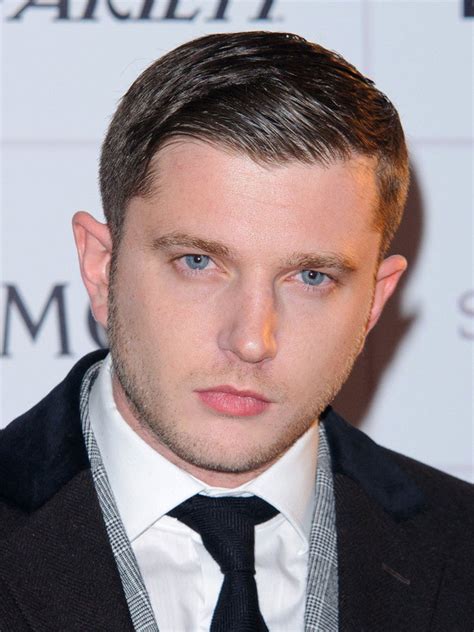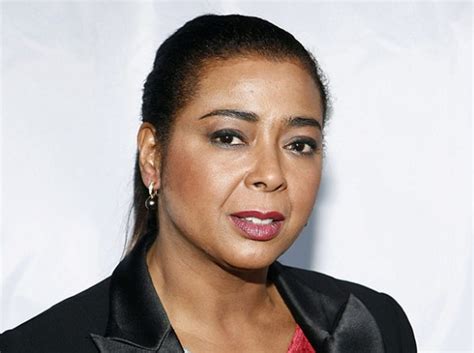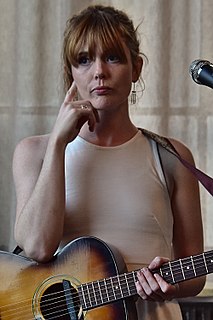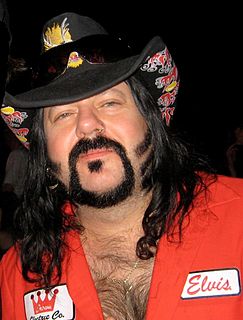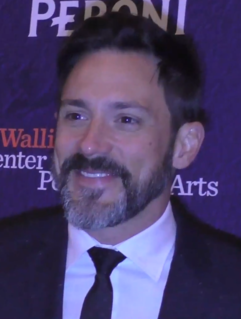A Quote by James Blunt
If you have good songs and a real desire to make music, the next thing to do, instead of approach record companies, is to get yourself a really good manager because then it allows you to focus on your profession of being a musician. Then they can focus on the darker art of the record label and the music industry.
Related Quotes
I work at a record label where I have archives. These things [memorabilia] occurred and are important to somebody, and they're important to me. I find the record industry largely repellent. This music, the Teen Idles, all of that stuff, is important to me. I don't have lawyers, an agent or a manager. However I find the music industry largely repellent. I just make records because that's what I love to do. So I think that era, those pieces of media, I keep in my collection.
I love the way I make hip-hop and I refuse to make pop-rap. I don't refuse to make mainstream music, which is why I did a soul record. There was no reason why soul music couldn't get played on the radio and I still wanted to have a relationship with my record label. So, I really enjoyed doing the Strickland Banks album. But there's no point in my trying to release underground hip-hop music on a major label. That part of my talent, or part of my art, had to live somewhere else and feature film was the perfect vehicle for it.
If I focus on being an activist and my job is to be a rapper, I'm not going to be as good of a rapper. I need to focus on hip-hop and focus on making the music, so that when the activists come to me and they need my voice to create a platform, then I've got enough people listening to me. Not because I'm conscious, but because I'm dope.
When it all started, record companies - and there were many of them, and this was a good thing - were run by people who loved records, people like Ahmet Ertegun, who ran Atlantic Records, who were record collectors. They got in it because they loved music... Now, record companies are run by lawyers and accountants.
I write songs. Then I record them. And later, maybe I perform them on stage. That's what I do. That's my job. Simple. I don't feel comfortable doing interviews. My profession is music, and writing songs. I like to do it, but I hate to talk about it...Music is spiritual. The music business is not. Being famous was extremely disappointing for me. When I became famous it was a complete drag and it is still a complete drag.
[Jack Johnson] became a superstar and started his own record label, and then he made and produced my first record, he co-wrote the songs on there, and then he let me open up for him for two years all around the world. And that was like the best start I could've had, the best way I could've started in the music scene.
I think my philosophy on music is sort of like the difference between religion and spirituality or religion and faith. There's a lot of bullshit in the music industry. It's really tough to get a leg up and navigate around your gender and stereotypes. You feel hopeless, [but] all of that disappears the minute that I start writing a song. Then I record something and have that magical feeling. You have to have the negative and the positive. Trying to own that and go to that place in yourself creatively is the most important thing.
I would give anything if it went back to analog age. I mean, music was so real, and you had to sing everything on a record; you had to play everything on a record. There was no cut-and-paste - you couldn't get the chorus right one time and then paste it every other time; you really had to be good at what you did.
For me, music is sort of my passion, more so than being an actor. I just never tried to make a career as a musician. It was just something that I did on my own time, just for me. I had written a lot of songs, but I don't really record a lot of music because, for me, it's the same way as a poet: I write to get things out. It's sort of cathartic.


